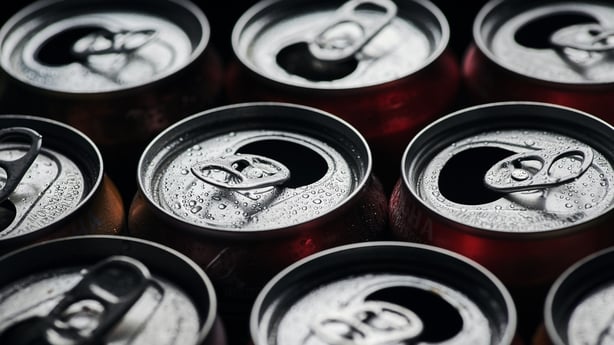Parents urged to exercise restraint around Easter eggs

Parents have been urged to exercise restraint when it comes to buying Easter eggs for their children this year.
The HSE National Clinical Lead on Obesity has said that on average children will receive six Easter eggs each and this is too much, particularly at a time of an obesity epidemic.
Speaking on RTÉ’s Today with Claire Byrne, Professor Donal O’Shea said “a little control in this area” would make a big difference at a population level.
He said the food and drinks industry is creating a daily consumption of products like chocolate.
This means when it comes to special events like Christmas and Easter, the only way to make the consumption of these foods special is to “go large”, Prof O’Shea said.
The human brain is wired to consume, he said, before criticising retail trends to bring in sugary promotions earlier and earlier in the year.
People do not understand how hard wired the brain is to be unable to resist the combination of high fat, high salt and high sugar, he said.
Selection boxes are available at back to school time and it is cheaper to buy the box than it is to buy the bars individually, Prof O’Shea said.
Similarly, the current promotion of Easter eggs is designed to get people buy as many eggs as possible during Lent, he added.
Adult obesity rates falling in Ireland
On a positive note, Prof O’Shea said that Ireland’s adult obesity rates are slowly coming down, while Ireland did not see in weight in children during the Covid pandemic that was seen in other countries like the UK.
“I think parents are doing a fantastic job because one in four of our children have overweight or obesity, but four in five don’t. And that’s pretty good in the toxic environment that we have,” he said.
The weight loss drug Ozempic is not the silver bullet for everyone but for the first time there are safe treatments for obesity that do not involve surgery.
He said obesity needs to be treated, pointing out that obesity can lead to complications like cancer, heart conditions and stroke.

Meanwhile, a study has found that eating a lot of ultra-processed foods (UPFs) such as sugary cereals, ready meals and fizzy drinks has been linked to poor mental health and a greater risk of dying from heart issues.
Strategies should be developed to intervene in the exposure to UPFs, researchers urged, in a bid to improve human health.
UPFs are usually higher in fat, sugar and salt and contain chemicals, colourings, sweeteners and preservatives that extend shelf life.
An umbrella review conducted by academics in Australia analysed 14 review articles published in the last three years which associated UPFs with poor health outcomes.
These included 9.9 million people, with data on exposure to UPFs coming from the likes of food questionnaires and dietary history.
The team graded the evidence by convincing, highly suggestive, suggestive, weak or no evidence.
Based on “convincing” evidence, a higher UPF intake was associated with a 50% greater risk of death from cardiovascular disease, a 12% greater risk of type 2 diabetes, and a 48-53% greater risk of developing anxiety.
There was also “highly suggestive” evidence that eating more UPFs could increase the risk of obesity, type 2 diabetes, sleep problems and dying from heart disease by 40-66%, as well as a 22% greater risk of developing depression and a 21% greater risk of death from any cause.
Researchers said that the evidence between UPF intake and “asthma, gastrointestinal health, some cancers, and intermediate cardiometabolic risk factors remains limited and warrants further investigation”.
They added that their findings, published in The BMJ, “provide a rationale to develop and evaluate the effectiveness of using population based and public health measures to target and reduce dietary exposure to ultra-processed foods for improved human health”.
“They also inform and provide support for urgent mechanistic research,” the researchers said.
In a linked editorial, academics from Brazil said “no reason exists to believe that humans can fully adapt” to UPFs, which they say are “often chemically manipulated cheap ingredients” and “made palatable and attractive by using combinations of flavours, colours, emulsifiers, thickeners, and other additives”.
They added: “It is now time for United Nations agencies, with member states, to develop and implement a framework convention on ultra-processed foods analogous to the framework on tobacco.”





